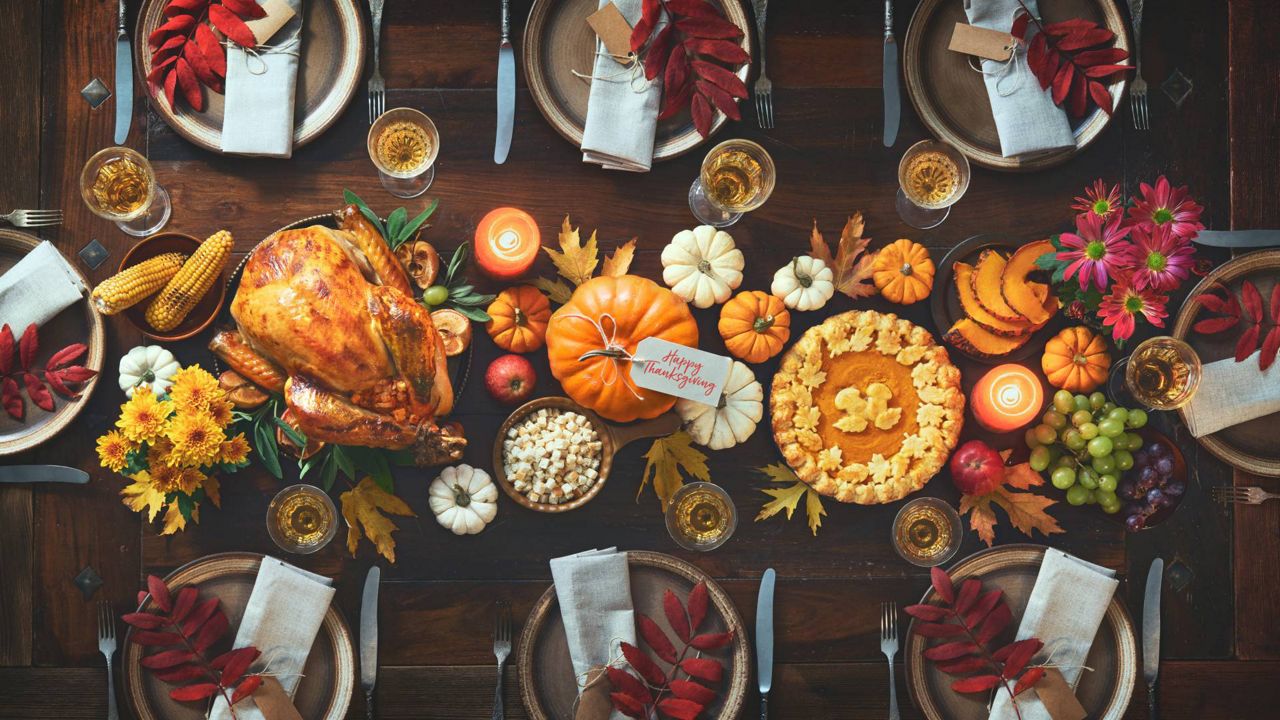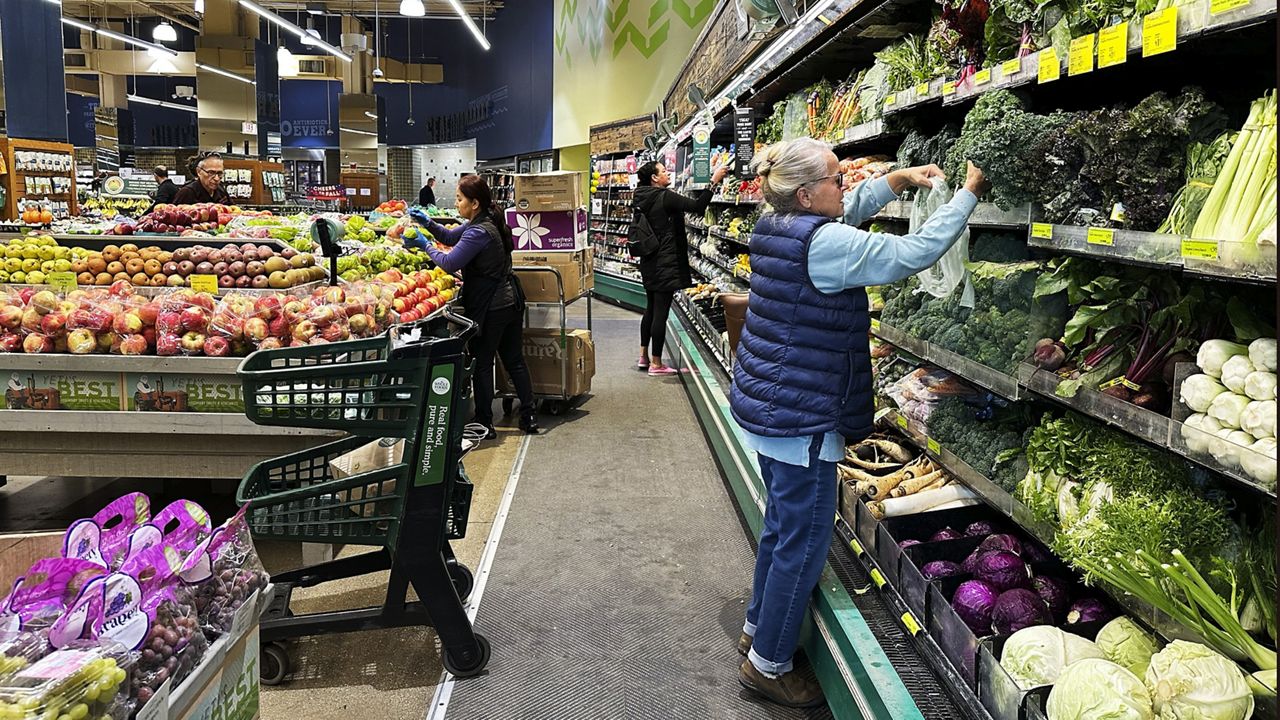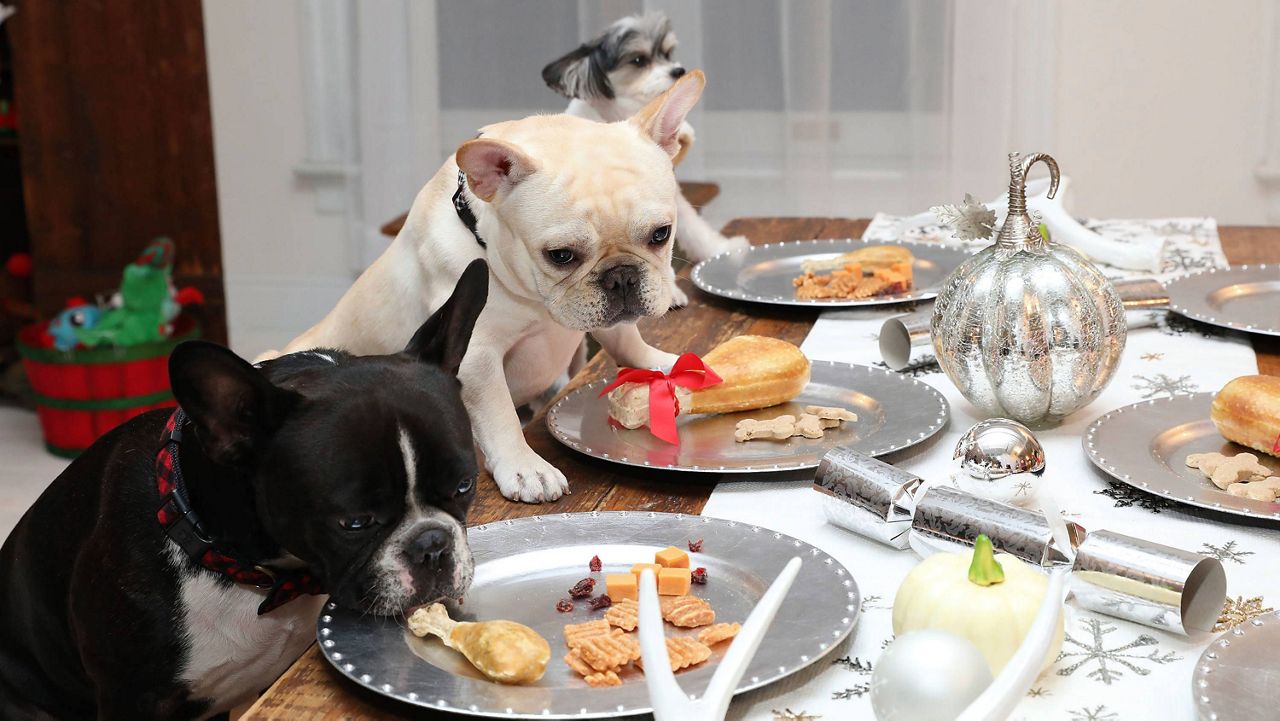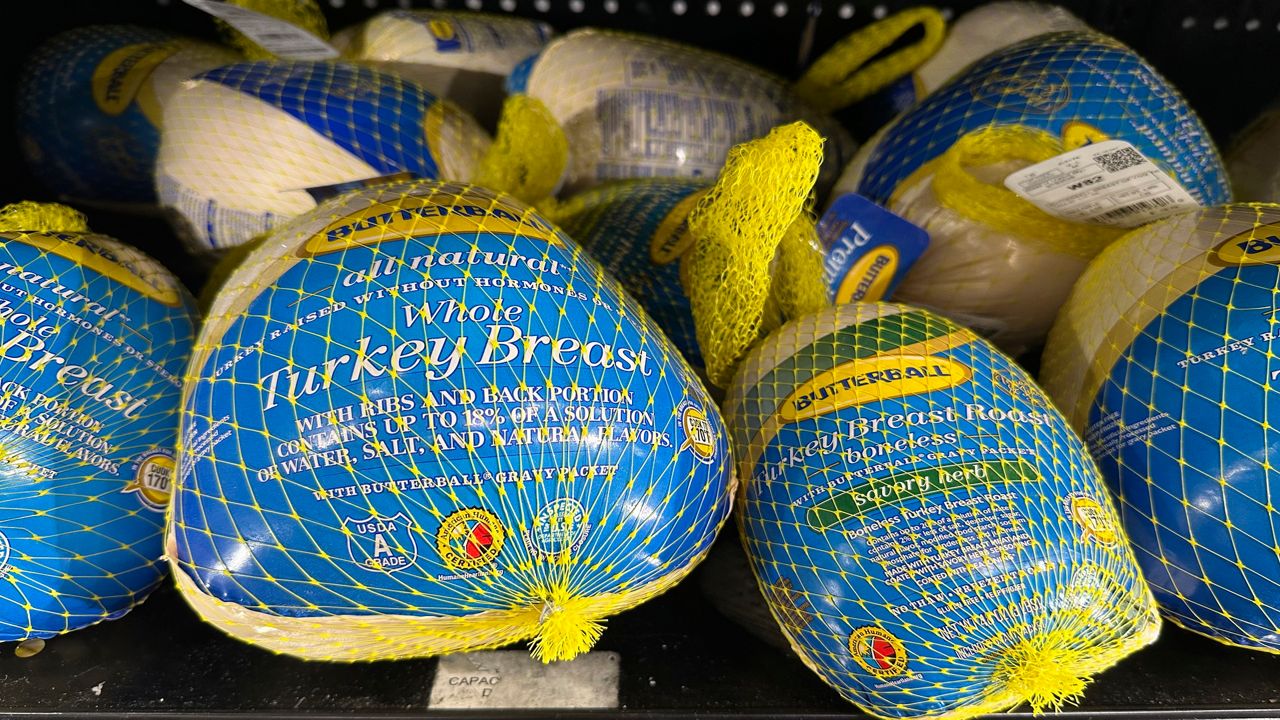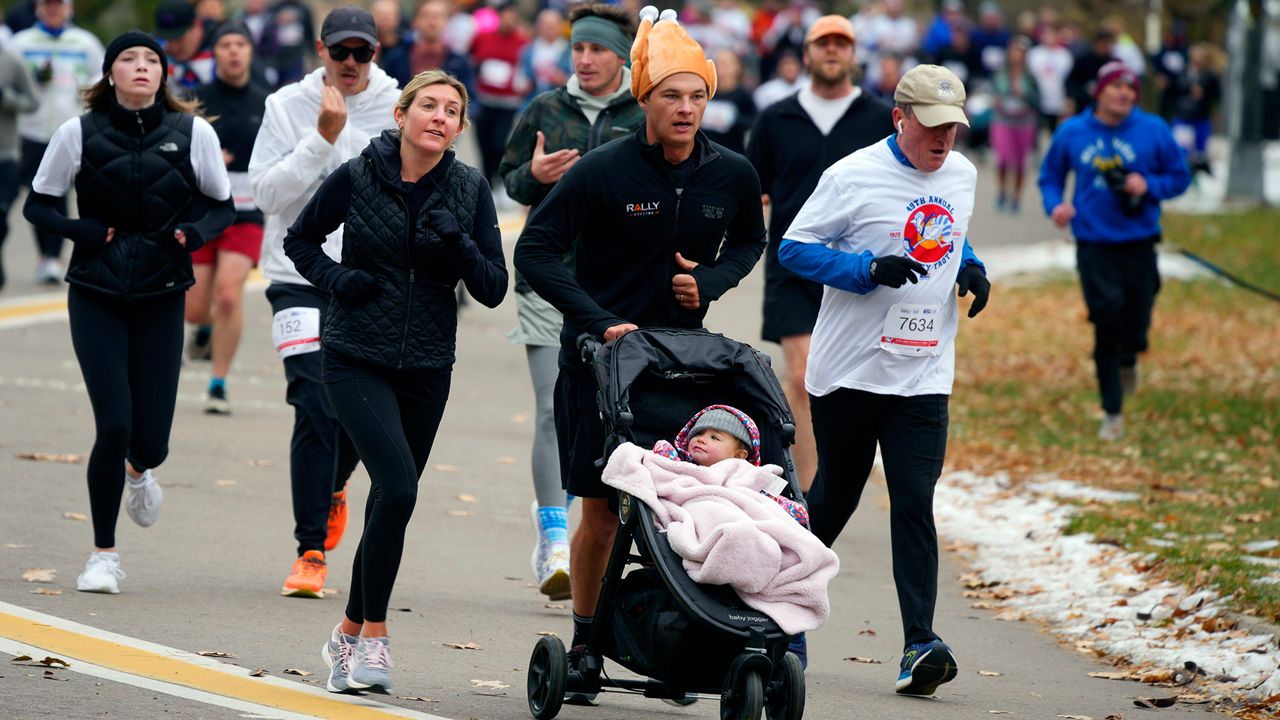NATIONWIDE — Thanksgiving feasts can cause both people and their pets to salivate.
“Before the celebration begins, it’s a good idea to make sure your Turkey Day will be as pet-friendly as possible,” the American Society for the Prevention of Cruelty to Animals (ASPCA) said.
ASPCA released these safety tips ahead of the holiday:
Food safety
Thanksgiving and food go hand in hand. Here are some people foods that could be trouble for pets.
Turkey
Be sure to keep turkey bones and leftover carcasses away from your pet.
“A few small, boneless and well-cooked pieces of turkey should be fine. But never offer your pal raw or undercooked turkey because it could contain salmonella bacteria,” ASPCA said. “Dogs and cats have a hard time processing fatty foods like turkey skin, and even small pieces of bone can lead to gastrointestinal injury.”
Bread dough
Bread dough belongs in the oven, not in your four-legged friend’s stomach.
“If your doggie or kitty ingests raw bread dough, the yeast will continue to convert the dough’s sugars into carbon dioxide and alcohol, a combination that could become life-threatening for your pal,” ASPCA said.
Pies and cakes
Pet owners shouldn’t indulge their animals sweet tooth.
“Keep puppy and kitty noses out of the mixing bowl while you’re baking because raw eggs can lead to food poisoning,” ASPCA said. “Also, if you’re using the artificial sweetener xylitol (found in certain peanut butter brands) in any desserts, be aware that this can be fatal if consumed by pets.”
Chocolates
Decadent chocolates look beautiful on your dessert table, but anything with chocolate is toxic to pets.
ASPCA said to keep chocolate away from both dogs and cats as it can cause vomiting, diarrhea, high blood pressure, seizures and other symptoms.
Decoration dangers
“Although pumpkins and decorative corn aren’t toxic, ingesting too much can give your lil buddy a bad case of tummy upset,” ASPCA said. “You’ll also want to be careful with candles that curious puppies and kitties could knock over, as well as any decorations that have small pieces that your pet could easily choke on.”
If you decorate for the holiday season, be sure to keep glass ornaments, tinsel, pinecones and light strands out of your pet’s reach.
Floral centerpieces
People know flowers aren’t food, but many pets don’t.
Some popular fall plants that are toxic to both dogs and cats include autumn crocus, chrysanthemum and acorns from oak trees
“If you suspect your dog or cat has consumed a poisonous plant or substance, act fast. Contact your veterinarian, an emergency veterinary clinic or the ASPCA Animal Poison Control Center right away,” ASPCA said.
Hosting guests
Thanksgiving is all about gathering with loved ones. ASPCA said a house full of guests can make dogs and cats shy, nervous or overly excited.
“If your pal seems anxious, try putting them in a quiet room away from the action with a favorite toy and plenty of fresh water,” ASPCA said.
Guests coming and going also give your pets an opportunity to take themselves for an unsupervised walk.
ASPCA suggested the holidays are a good time to make sure your animals have proper identification with updated contact information and are micro-chipped.
Preparing for emergencies
Holiday accidents can strike at any time. Having a plan before they happen is always a good idea.
“It’s a good idea to ask your veterinarian about their holiday hours ahead of time and add the telephone numbers for an emergency veterinarian clinic and the ASPCA APCC to your contacts just in case,” ASPCA said.
Keeping a pet first-aid kit on hand is also highly recommended.




